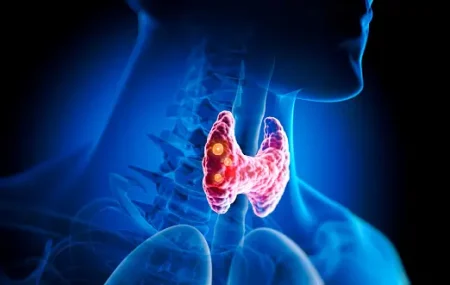
The most beneficial hormone for improvement in quality of life and metabolism is also the most resisted and misunderstood hormone by most health care providers, especially those who have not taken the time to learn the medical literature outside of what is taught in school. This hormone is THYROID! Thyroid improves quality of life and metabolism in every cell of the body. If you have ever thought you may benefit from thyroid hormone supplementation and were told everything looks “normal” – it can be very confusing and frustrating. Most often the only test ordered to check for thyroid function is TSH. Sometimes T4 is also tested. This is a problem, because the most important thyroid hormone, and your symptoms, are ignored!

Imagine there is a group of kids inside a room in your house with the door closed, and you want to know what they are doing. If you ring the doorbell on the front porch of the house, will you find out the answer? Of course not! It doesn’t even make sense, does it?
TSH is like ringing the doorbell. To know what those kids are doing, you need to know the level of free T3, and sometimes even reverse T3. If only TSH is tested and it shows to be in the “normal” range, you will likely be told that there’s nothing that can be done; that everything looks “normal”.
Symptoms of low thyroid function include (but are not limited to) feeling weak, cold, tired, fatigued, thin hair, skin and nails, weight gain, increased body fat, loss of energy and motivation, brain fog, decreased memory, depression, and loss of well-being. You do NOT have to fit the box of a diagnosis to get treated and to feel relief.
If your free T3 is on the low end of the range, even if TSH and free T4 are in the “normal” lab range, many people still feel symptoms and have trouble getting relief unless they supplement with the right kind of thyroid hormone. Multiple scientific studies, including psych and endocrine literature, support the use of thyroid hormone to treat symptoms even when the levels in the blood are within the normal range on lab tests. Many studies also demonstrate that only high physiologic levels result in resolution of symptoms. Thyroid hormone may be prescribed off-label to treat symptoms. With the right kind and the right dose for you, relief is in site!

However, not every thyroid hormone prescription is created equally. The one that is most commonly prescribed is Synthroid or Levothyroxine, which is only T4. If you take T4 only, it will suppress T3 and you may not feel any better or you may even feel worse.
Desiccated thyroid is a natural thyroid hormone that is a combination of T4 and T3. NP Thyroid is commercially available and is made in the USA. It can also be compounded, which costs less and may be better absorbed, especially if you have a sensitivity to wheat. When you take thyroid hormone, it is considered exogenous supplementation if you still have a functioning thyroid; exogenous replacement if you no longer have a thyroid gland.
If you are wondering why you are experiencing symptoms of low thyroid function, it could be one or more of three things. Your thyroid gland may:
-
not be producing enough T4
-
not be converting T4 to T3 (remember T3 is the active form of thyroid and the most important one)
-
have receptors that have become resistant to thyroid hormone, and therefore less effective, despite your blood levels showing to be “normal.”
Reminder: TSH alone is NOT an accurate measurement of thyroid function.
Aside from relieving symptoms, there are many benefits! Thyroid hormone:
-
Protects against cardiovascular disease, diabetes, cognitive impairment, fatigue, weight gain, increased cholesterol, and memory loss.
-
Regulates body temperature, metabolism, brain function, energy, and fat burning.
-
Increased metabolism and lipolysis which leads to weight loss and lower cholesterol and blood sugar levels.
-
May restore normal menstruation and fertility in women with PCOS.
Risks/side effects may include:
-
Sweating, palpitations, tachycardia, tremor, or nervousness, but these are typically symptoms of endogenous (caused by something internally, without any supplementation with thyroid hormone) hyperthyroidism and not exogenous replacement. Endogenous hyperthyroidism is NOT caused by taking thyroid hormone.
-
Side effects are rare with exogenous supplementation or replacement.
-
Exogenous replacement does not cause the side effects of endogenous hyperthyroidism, but many people (including healthcare providers and practitioners) will state and claim that it does.
-
Studies from the psych literature and endocrine literature repeatedly show no harm to high dose replacement. Harm is only due to an underlying autoimmune disorder, called Grave’s disease (in which case you would have an overactive thyroid at baseline, not underactive).
SUMMARY:
-
Raising T3 levels to optimal will improve symptoms, whereas using T4-alone does not. A combination of T4 and T3 is required in order to optimize T3.
-
Desiccated thyroid is the best choice for supplementation or replacement, either compounded or NP thyroid. Armour thyroid is now too expensive, and others are difficult to obtain due to shortage.
-
It is low T3 at the cell level that is responsible for the symptoms of low thyroid, not TSH and not T4.
-
Commercial thyroid may not be absorbed well in people with corn or gluten sensitivity; compounded is the better choice in these cases.
-
Symptoms, signs, and Free T3 levels are the best guide to therapy and adjustment in dosages.
-
There are perceived risks, especially when looking at TSH only.
The goal of treatment is to provide functional improvement, improved quality of life, energy, and mental alertness as a psychosocial benefit. Imagine that, improve your quality of life with something natural AND that makes sense!

This information was adapted from Worldlink Medical.
With gratitude,
Megan Miller, FNP-C